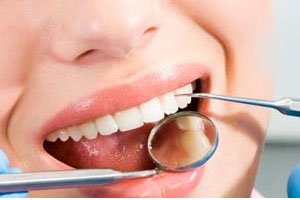
Periodontics
Periodontics dental specialty refers to gum disease treatment. The gums get infected and tend to bleed when scaling and polishing are not done regularly. The infection causes a bad odour in the mouth, leading to bad breath.
The bleeding gums and bad mouth smell are easily treatable as the cause of the problem is bacteria. Once we remove the bacteria the problem settles down. Scaling is done and if needed Gum curettage is done. In advanced cases, gum surgery may also be needed.
Treatments
Flap Surgery
Flap surgery is a technique in plastic and reconstructive surgery where any type of tissue is lifted from a donor site and moved to a recipient site with an intact blood supply. This is similar to but different from a graft, which does not have an intact blood supply and therefore relies on growth of new blood vessels. This is done to fill a defect such as a wound resulting from injury or surgery when the remaining tissue is unable to support a graft, or to rebuild more complex anatomic structures such as breast or jaw.
Root Planing
Scaling and root planing, otherwise known as conventional periodontal therapy, non-surgical periodontal therapy, or deep cleaning, is the process of removing or eliminating the etiologic agents – dental plaque, its products, and calculus – which cause inflammation, thus helping to establish a periodontium that is free of disease.
Gingivoplasty
Gingivectomy is the removal of gum tissue (gingiva) by surgery. Gingivoplasty is a type of gum surgery used to reshape healthy gum tissue around teeth. Periodontists typically perform both types of surgery. These dentists specialize in treating gums and the other structures that support teeth.
Crown Lengthening
Crown lengthening is a surgical procedure performed by a dentist to expose a greater amount of tooth structure for the purpose of subsequently restoring the tooth prosthetically.This is done by incising the gingival tissue around a tooth and, after temporarily displacing the soft tissue, predictably removing a given height of alveolar bone from the circumference of the tooth or teeth being operated on. While some general dentists perform this procedure, others frequently refer such cases to periodontists.
Operculectomy
The flap of tissue that covers a partially erupted tooth is called the operculum. A partially erupted tooth can be more prone to decay and gum disease. It also causes inflammation of the gums and infections to the adjacent tissues. In order to proceed with the treatment of a partially erupted tooth, the operculum on the tooth should be removed by surgery; this surgery is called the operculectomy. Typically, operculectomy is performed for the treatment of a partially erupted wisdom tooth.
- Depigmentation
- Soft Tissue Augmentation
- Bone Grafting
- Root Coverage
Gingivectomy
Gingivectomy means excision of the gingiva.By removing the pocket wall, gingivectomy provides visibility and accessibility for complete calculus removal and thorough smoothing of the roots,creating a favorable environment for gingival healing and restoration of a physiologic gingival contour.
